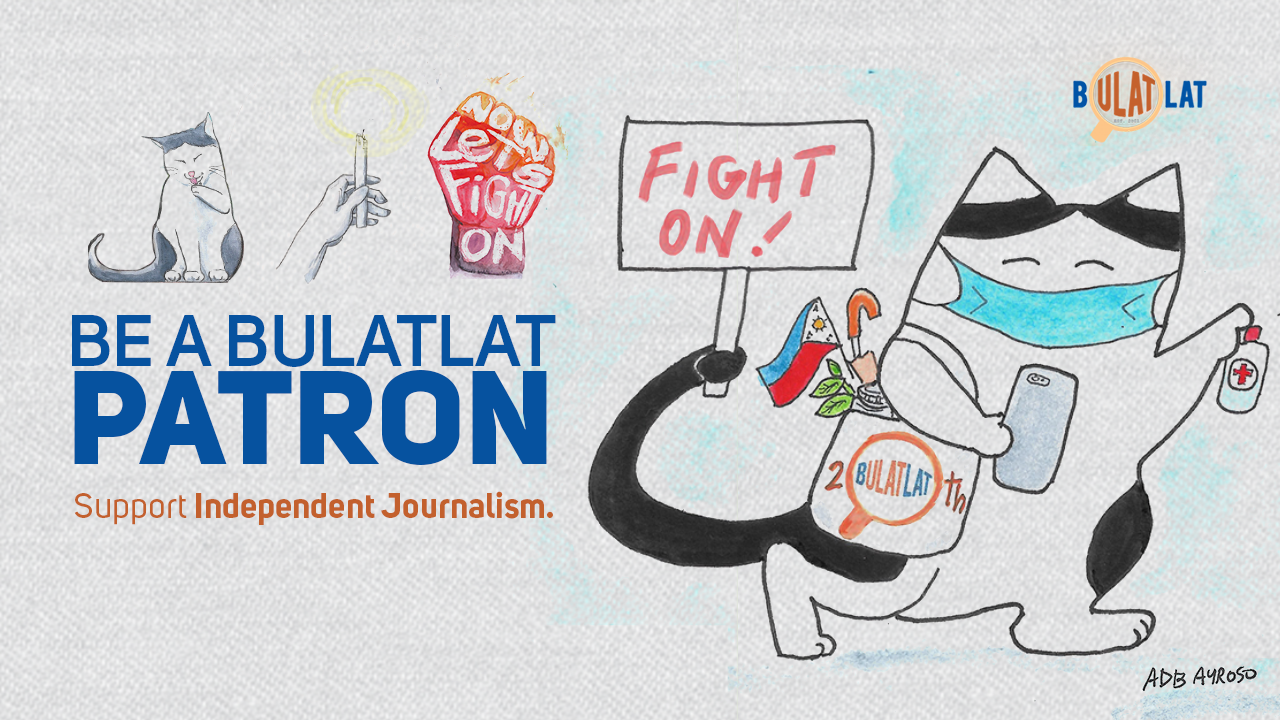Two lawyers, one of whom recently passed the 2022 Bar exams, share why
people’s lawyering has become a necessity for them.
By MAVIC CONDE

Atty. Rea Guiloreza represents a student journalist for her first case as a lawyer. Photo courtesy of Atty. Sol Taule.
MANILA, Philippines — The country’s dire human rights condition necessitates people’s legal representation, according to lawyers Rea Guiloreza and Mark Vincent Lim, who recently passed the 2022 Bar examinations.
“Many human rights violations go unnoticed by local and national media, and it is the task of people’s lawyers, paralegals and fellow human rights defenders to respond to these cases and bring these to public attention,” Guiloreza said in an email.
“A people’s lawyer [redacted] defends, protects and promotes human rights, particularly of the poor and the oppressed…who have historically fought for their rights and freedoms,” she says, adding that as long as human rights violations exist, the struggles of the victims stay “at the forefront of people’s lawyering.”
Likewise, new Bar exams passer Lim chose to become a people’s lawyer because for him “it is the right and necessary thing to do,” even if it “is the road less traveled.”
“Bar passers should think about becoming people’s lawyers because there is a need to ensure greater and equitable access to justice. Not only do we have few lawyers, but also fewer people’s lawyers,” Lim told Bulatlat in an email.
Paralegal work
Guiloreza worked as a paralegal for people’s lawyers who defended farmers, farm workers, and indigenous people on false charges, including Tumandok people who were arrested in a fake encounter in Tapaz, Capiz, on December 2020, while nine red-tagged Tumandok leaders were massacred.
A few months later, Tumandok lawyer Angelo Karlo Guillen survived a murder attempt. People’s lawyering becomes more important to her as a paralegal student after learning about these human rights breaches.
She said that once a lawyer understand its necessity, they would learn not only “to extend legal assistance to [your] clients but also [to] advocate for them outside the courtroom.”
“Fulfillment comes in the knowledge that, after every incident, our clients don’t stop standing and fighting for their rights,” she added.
Meanwhile, Lim worked as a legislative consultant in the House of Representatives while finishing his studies, co-writing many laws and resolutions, particularly on education, academic freedom, and red-tagging. He also did his internship at the Ateneo Human Rights Center (AHRC) and the Public Interest Law Center (PILC), as well as immersed and gave paralegal training in vulnerable communities in Zambales and Dinagat.
Lim and Guiloreza have both previously assisted youth activists in getting false charges dropped. One of the latter’s most memorable cases was representing a campus journalist who was arrested while reporting a student protest in front of the US Embassy in Manila just a few hours after signing the roll of attorneys last year.
“I’ve responded to similar cases in my own province many times since, and it is a new and challenging experience every time,” she said.
Lim, on the other hand, is currently the Legal Affairs Officer of Kabataan Party-list, the sole representative of the youth in Congress.
Dispelling stereotypes
The two lawyers want to dispel myths about the legal careers of people’s lawyers, such as labeling them as New People’s Army members.
According to Guiloreza, red-tagging people’s lawyers “affects everyone in the legal profession, especially those who serve as defense lawyers in criminal cases.”
She claims that a PAO lawyer was recently profiled and monitored by the Surigao del Sur Provincial Police Office for handling cases involving alleged armed rebels.
“Every accused has the constitutional right to a competent and independent counsel. Lawyers should not be threatened for exercising their duties and obligations they’ve sworn to when they entered the profession,” she said.
For Lim, there’s a misconception that people’s lawyers often lose in court. “Some legal battles may be uphill, but there are times when we fight not just to win, but to register dissent and rekindle hopes of victory,” he said.
Lim claims that people’s lawyers have championed and secured, among other things, the unconstitutionality of the pork barrel system in the form of the Priority Development Assistance Fund (PDAF), the unconstitutionality of cross-border saving transfers under the Disbursement Acceleration Program (DAP), the reprieve for overseas Filipino worker Mary Jane Veloso, and the conviction of former army general Jovito Palparan, Jr. for kidnapping and serious illegal detention of students.
Joining lawyers’ organizations
While both lawyers also agreed that a people’s lawyer can practice solo, they encourage joining lawyers’ organizations such as the National Union of Peoples’ Lawyers.
“Yes, go without membership to the organization, but the work can sometimes feel too heavy to be handled alone. Joining the Union allows one to share this burden with similar-minded lawyers. There is strength in numbers,” Guiloreza said.
“Since we rely on collective action as our clients do, it is better to join,” Lim added.
This also reminds Lim of how he survived his academic tasks and paralegal work. “It was challenging since I needed to maintain good grades for my scholarship grant [at the Ateneo de Manila University]. I am thankful for my kasamas who supported me all throughout,” he said. (RTS) ![]()


